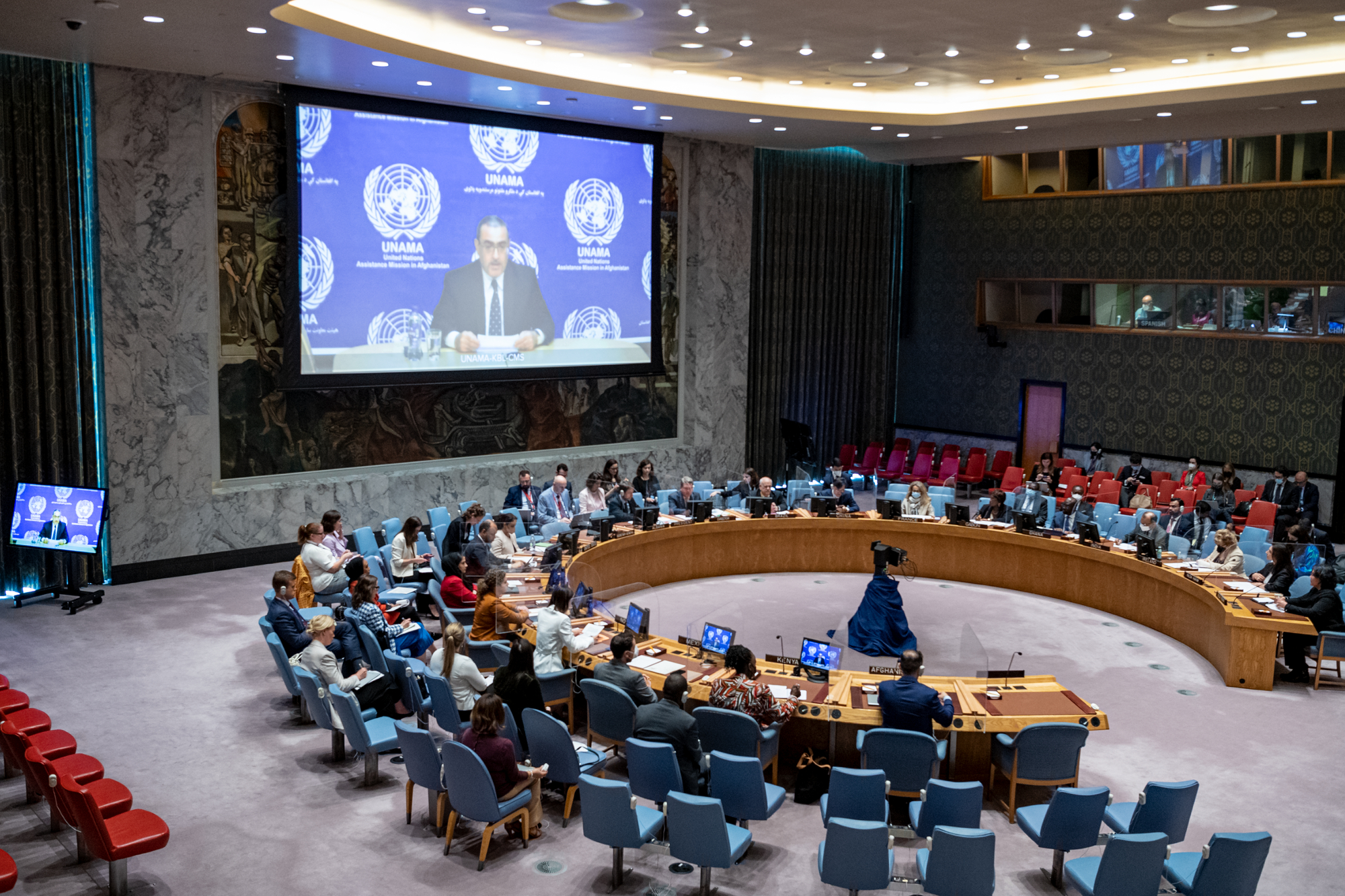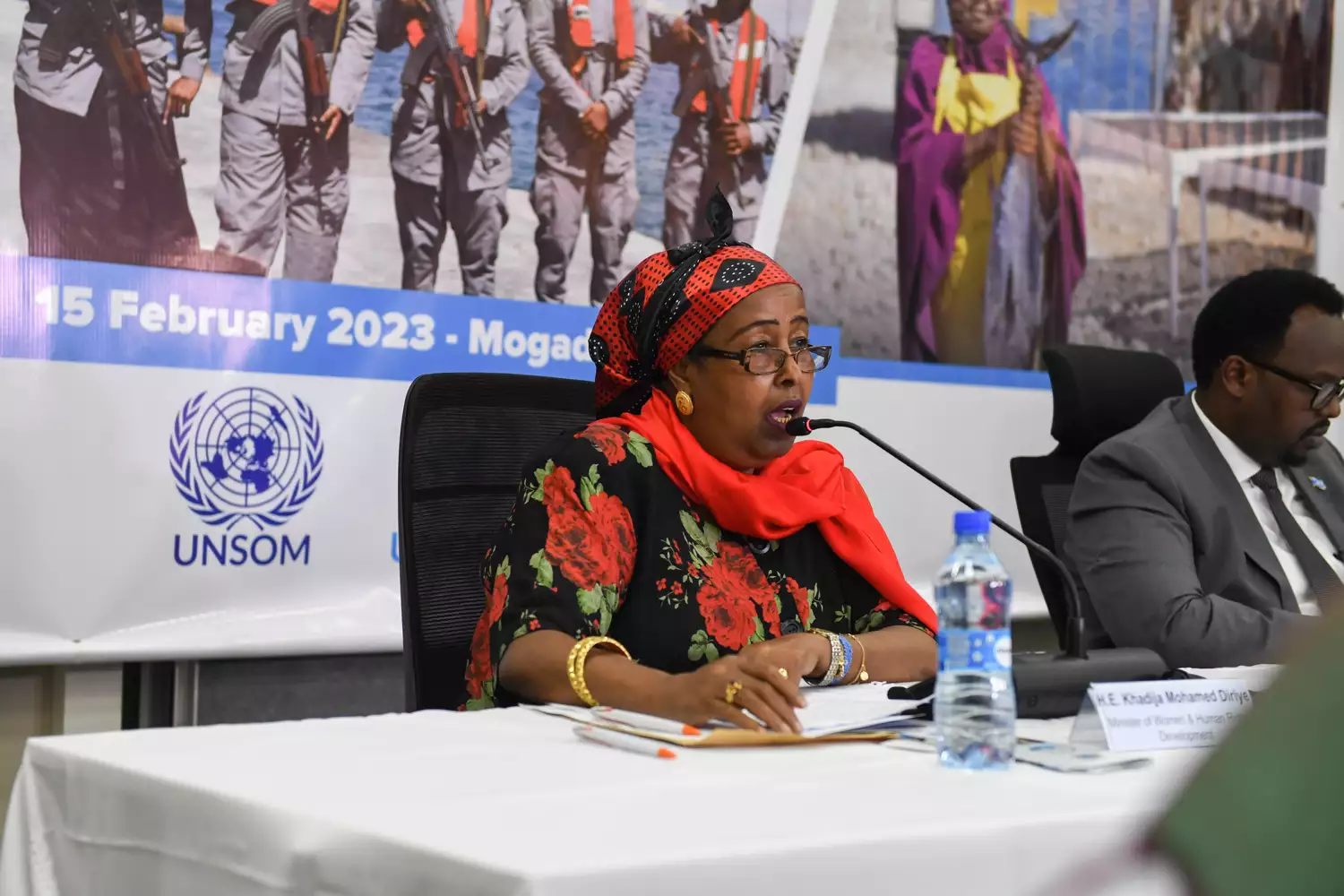In addition to peacekeeping operations, the UN operates special political missions (SPMs) engaged in conflict prevention, mediation, and post-conflict peacebuilding around the world. Authorized by the Security Council, SPMs are tasked with an array of responsibilities, including supporting political dialogue and reconciliation processes, facilitating free and fair elections, monitoring human rights violations, coordinating international development and humanitarian assistance, and encouraging the development of effective rule of law institutions. Funded by Member State dues, SPMs account for nearly one-quarter of the UN regular budget. The work of several SPMs currently in the field is highlighted below.
Meeting the Moment: The U.S. and the UN in 2023
UN Political Missions
Afghanistan
First deployed in 2001 after the U.S. invasion, the UN Assistance Mission in Afghanistan (UNAMA) has supported numerous activities critical to the country’s stability and development over the years. In the wake of the Taliban’s seizure of power in August 2021, the UN’s work in Afghanistan has become significantly more complicated. However, the UN remains focused on coordinating the delivery of critical humanitarian and development assistance to Afghan civilians, who continue to experience historic levels of economic dislocation and food insecurity. Overall, nearly 24.4 million Afghans—60% of the population—required humanitarian assistance in 2022, a number that is projected to rise to 28.3 million this year, and more than 20 million Afghans are experiencing high or critical levels of food insecurity.
After the fall of the internationally recognized government, the UN Development Programme (UNDP) worked to prevent the collapse of the country’s health system by directly paying the salaries of 25,000 doctors, nurses, and other health care workers across 2,200 health facilities. UNDP also established a program, supported by the Special Trust Fund for Afghanistan, to finance a variety of local activities, including grants to support small businesses, especially those run by women; cash-for-work projects offering short-term income to the unemployed to restore local infrastructure; and basic income support to people with disabilities, elderly people, and other vulnerable individuals. This program, known as ABADEI, seeks to help 2 million people over the next two years, and like the efforts to pay health care workers, provides assistance directly to beneficiaries, thereby skirting the Taliban authorities. Beyond these efforts, the UN has worked to respond to the broader humanitarian crisis in the country, providing food and nutrition assistance, clean drinking water, shelter, vaccines, and other lifesaving forms of humanitarian assistance to millions of Afghans over the past year.

Photo Credit: UN Photo/Rick Bajornas
UNAMA also continues to track human rights violations in the country and has persistently called on the Taliban to ensure equal rights for women and girls, including access to education, work, and freedom of movement. Building off of this work, the UN Human Rights Council voted in late 2021 over Chinese and Russian objections to establish a special rapporteur to investigate abuses committed by the Taliban. The Council renewed this position in October 2022 and sharpened its mandate to place greater emphasis on documenting violations of the rights of women and children, a particularly important area of concern given the Taliban’s ban on secondary and university education for girls and women.
Somalia
For more than two decades, Somalia has been in a protracted state of political and humanitarian crisis, a situation further complicated by the presence of Al-Shabaab, a terrorist group linked to Al-Qaeda. In order to help stabilize the country, the U.S. supports the work of UNSOM, the UN Assistance Mission in Somalia. UNSOM provides policy advice and technical assistance to Somalia’s internationally recognized federal government on a range of critical state-building issues, including aiding efforts to create a new constitution; building the government’s capacity to carry out security sector reform and strengthen the criminal justice system; helping Somali authorities institute a nationwide disarmament, demobilization, and reintegration program for ex-combatants; and promoting negotiations among Somalia’s disparate political and regional groups. The UN has also worked alongside the State Department’s Bureau of International Narcotics and Law Enforcement Affairs to strengthen the ability of the Somali Police Force to carry out criminal investigations and counter Al-Shabaab.

Photo Credit: UN Photo / Steven Candia
UNSOM coordinates its efforts closely with a force led by the African Union (AU) that has fought alongside Somali security forces to secure territorial gains against Al-Shabaab in recent years. The UN Support Office for Somalia, which works with UNSOM, provides crucial equipment and logistical support to AU forces as they seek to weaken Al-Shabaab and help extend the Somali government’s authority throughout areas controlled by the group. The AU mission, which is in the process of transitioning all security responsibilities to Somali forces, is authorized by the UN Security Council to operate through 2024.
Colombia
In 2016, the Colombian government and Revolutionary Armed Forces of Colombia (FARC) guerrillas signed a historic peace agreement, ending a devastating 57-year civil war that had cost more than 220,000 lives. To support the agreement, the UN Security Council authorized a special political mission, initially to verify the end of hostilities and the FARC’s disarmament and subsequently to verify other aspects of the peace deal, including the demobilization and reintegration of 13,000 former FARC combatants into society. The mission is also charged with supporting the work of the Special Jurisdiction for Peace, a transitional justice mechanism set up to prosecute the perpetrators of crimes during the conflict. Implementation of the peace agreement has been slow and marked by setbacks as violence against former FARC combatants, human rights defenders, and Indigenous and Afro-Colombian communities continues to be a significant concern, as does violence perpetrated by other armed groups in the country. But the disarmament and demobilization of the FARC has helped bring a level of stability to Colombia not seen in decades. It also has provided a jumping-off point for addressing the deeper root causes of insecurity in the country. As a monitor of the peace agreement, the UN will continue to have an important role in pressuring all parties to live up to their commitments in the year ahead.